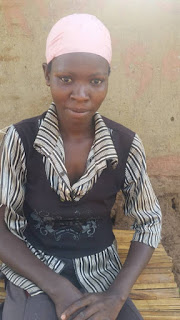
On a hot afternoon in Irenzi, I meet Zubra while collecting house-to-house surveys for the upcoming graduation of the village from UVP’s Healthy Villages Program. When we get to the questions about family planning and contraceptive use, I usually try to separate the women from the men in hopes to get a more truthful answer. Many women do not tell their husbands that they are taking a contraceptive, so asking them such sensitive questions away from their partner allows them to answer more truthfully. When Zubra answered that she was taking a contraceptive with her husband standing nearby, it was evident that both husband and wife were together in planning for their family.
Within a few short months of marrying and moving to Irenzi, Zubra became pregnant with her first child at 19 years old. She wanted to wait some time before becoming pregnant again, but felt despair because she knew that contraceptives were the only reliable way to delay a pregnancy, but with the health center and hour away, she didn’t know how she could get there without telling her husband to ask for transport money. Then, her neighbor told her about UVP’s reproductive health program and invited her to the next outreach.
After six months enrolled in UVP’s program, Zubra decided to tell her husband. At first, he was mad, but took time to listen to Zubra. After a long discussion, he agreed to attend a UVP reproductive health outreach specifically for men. “He was convinced!” Zubra remembers the day when he returned from the UVP outreach well. Her husband had many questions about common myths surrounding contraceptives, but when he returned home, he now knew that contraceptives did not cause cancer, barrenness, or birth defects.
“I’m grateful for UVP’s support of family planning services, otherwise malnutrition will finish our children since we cannot prevent unwanted pregnancies yet at the same time we are not able to take good care of the many children we would produce without contraceptives,” Zubra says.
*Zubra’s story is used with her permission.
By Josephine Asio, Program Coordinator
